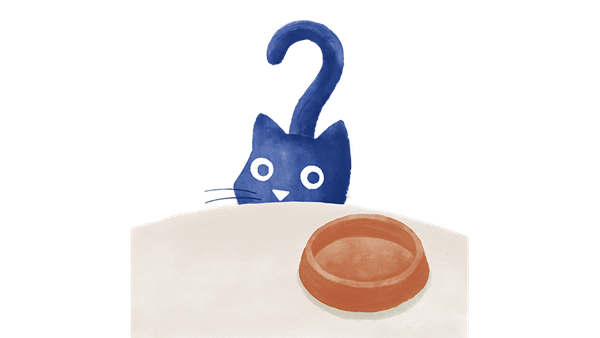How To Desensitise Your Pet To Fireworks And Loud Noises
Fireworks and other sudden loud noises can cause stress and anxiety in your pets. Find out how to desensitise them gradually over time, so that they’re well prepared for fireworks season.
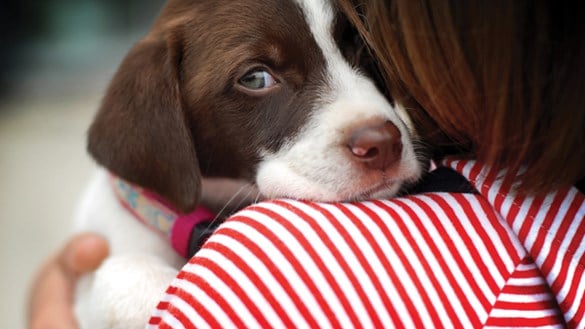
Why do fireworks and loud noises scare our pets?
As their hearing is so acute, pets can find fireworks and other unexpected loud noises stressful. Fireworks go off at irregular intervals, with no warning and no way of knowing how long the loud bangs and whistles will go on for. All of this triggers disorientation, anxiety and distress.
Fortunately, this reaction isn’t inevitable for all pets. It’s possible to help dogs and cats get used to loud noises so that they eventually have a calmer response. It takes patience and perseverance, but it’s well worth the effort. The reward is a happy, calm pet who can endure the experience of hearing fireworks without feeling distressed and running away to hide.
What is sound desensitisation for your pets?
Desensitisation (DS) for dogs, cats and rabbits is the gradual reduction in reaction to a source of anxiety over time, and counterconditioning (CC) is the changing of an emotional reaction to a source of anxiety, from a negative/anxious response to a positive response.
With fireworks, the process involves exposing your pet to audio recordings of fireworks over a few months, very quietly at first and gradually increasing the volume. To get the best results, we recommended that you start at least six months before fireworks season.
What you’ll need
Before you start sound desensitisation training, make sure you have the following:
- A safe haven: a calm, quiet space to carry out the DSCC training – establish this a few weeks before you begin. You might like to spray the area with a pet-friendly pheromone, which can help ease stress and anxiety
- Audio recordings of fireworks – there are some available from Dogs Trust
- Some of your pet’s favourite treats and toys
- Time to dedicate to the training: you’ll need several sessions a week
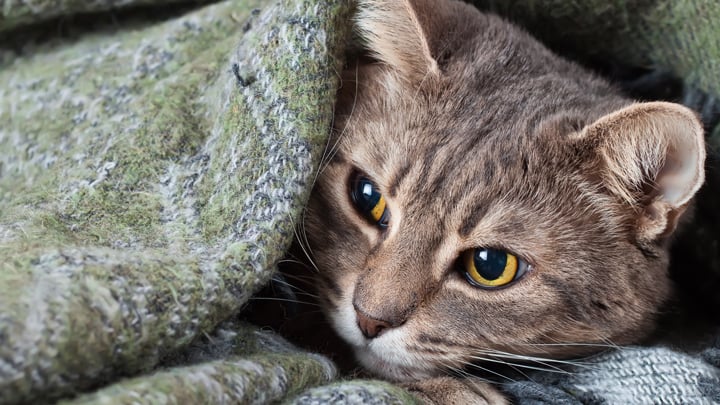
How to desensitise your pet to loud noises
Start to play the fireworks audio
When your pet is in their safe haven, start to play the fireworks audio at a very low level – so low that your pet either doesn’t respond at all or reacts by just turning towards the source of the noise. This reaction should only last 10 to 30 seconds.
Reward your pet after each loud noise
After each noise on the recording, to change your pet's emotional response to the noise, throw a pea-sized piece of their favourite food onto the floor for them.
Increase the volume of the fireworks sounds
Once they’ve stopped showing any signs of anxiety in response to the sounds and seem able to engage in other activities happily while the audio is playing, you can increase the volume. Give your pet 10 to 30 seconds to get used to the increased volume, then start to interact by offering some treats or toys after each loud noise.
Vary the volume during the training
When your pet is coping well at the volume you have selected, start to vary the volume more. Make the general trend that the volume increases, but do vary it lower as well as higher, this will give you a better response. Go very slowly; the more time you’re able to take over this, the more likely you are to have a positive result. Keep going until you can play the recording at a volume that mimics the sound level of real fireworks. Reward your pet’s calm response after each loud noise, using praise, play and treats – this will reinforce good behaviour.
Problem solved?
Like any behavioural change, helping pets respond differently to fireworks can be challenging. However, training your pet to react calmly to loud noises means that special occasions involving fireworks, such as Bonfire Night and New Year’s Eve, should become less stressful for them – and you. If they do still show an anxious response, don’t worry; it’s normal, and there are some things you can do to keep that response to a minimum. See our 12 ways to help your pet through fireworks season.
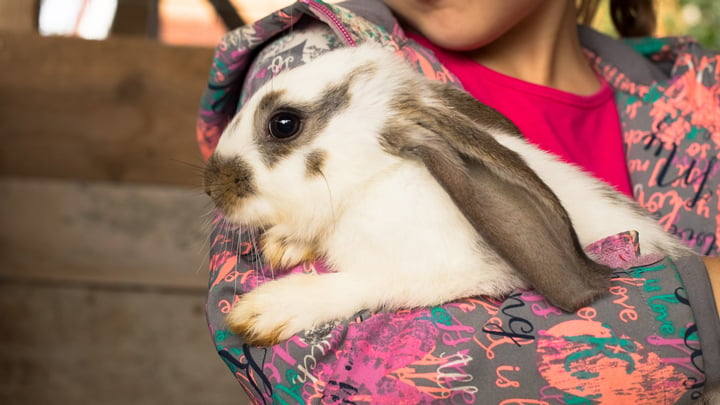
How your vet can help
Your vet will be happy to help you embark on a desensitisation programme, so don’t hesitate to contact them. There may be some cases where the noise phobia is severe, and your pet would benefit from the help of a qualified animal behaviouralist. If you have any concerns at all about your pet’s behaviour, discuss them with your vet. They will also be able to check there isn’t an underlying medical reason for their stress, such as a thyroid problem.
For more advice on fireworks and desensitisation, contact your local Medivet practice.
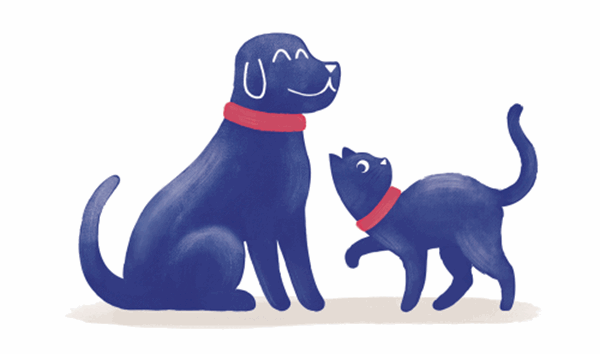
Medivet Healthcare Plan
On average our clients save an average of £225 with the Medivet Healthcare Plan.
Learn more


